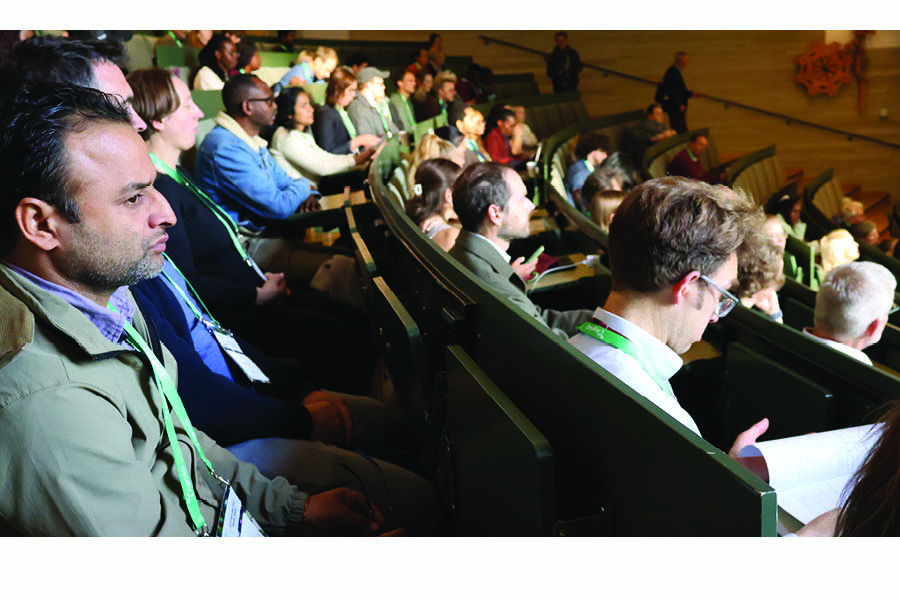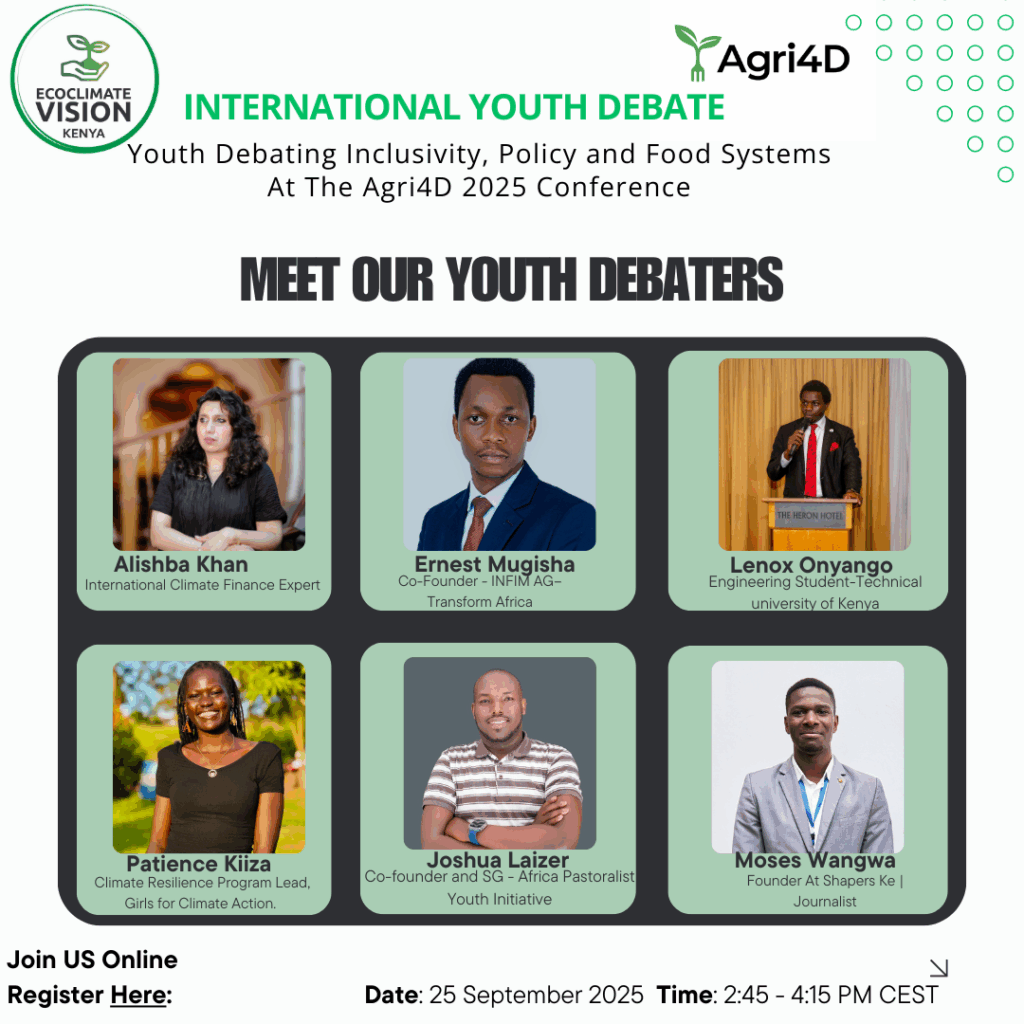The Agri4D 2025 Conference brought together global actors in food systems, climate action, and sustainable development to discuss science-driven solutions to transform food systems and advance the Sustainable Development Goals. Taking place amid intensifying climate disruptions and conflicts, the conference underscored that food systems lie at the heart of both the climate crisis and its solutions.
Against the backdrop of escalating climate change and persistent food insecurity, young people, particularly those from climate-vulnerable regions, remain disproportionately affected while being underrepresented in decision-making processes.
Recognizing the urgency of ensuring meaningful youth participation in governance, policy, and practice, EcoClimate Vision Kenya (ECVK) hosted a session titled “Young Voices of Regeneration for Regenerative Food Systems: Youth Debating Power, Policy, and Food Systems”. The session critically examined existing food governance narratives, showcase youth-led innovations, and generate practical recommendations for youth-led transformation in food systems.

